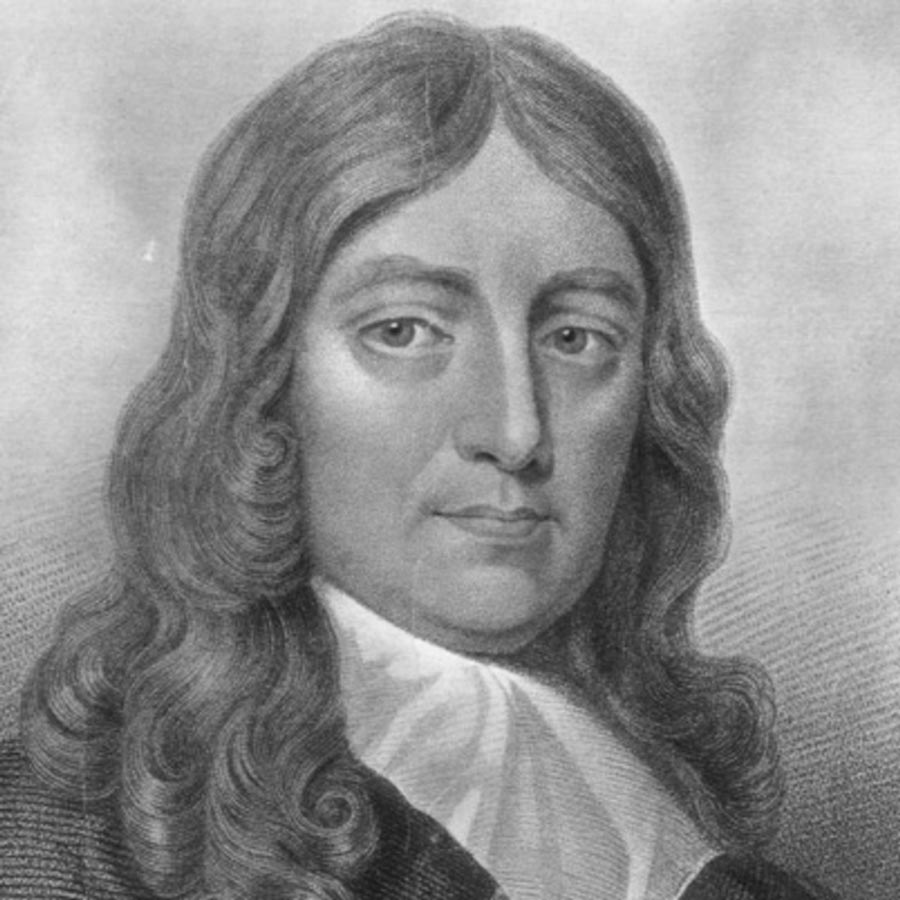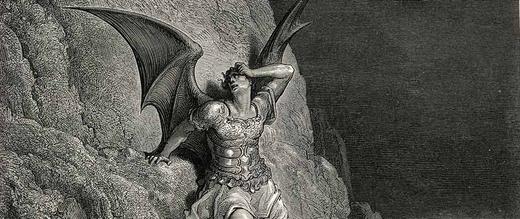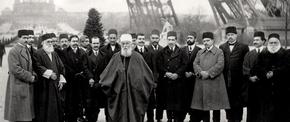The views expressed in our content reflect individual perspectives and do not represent the authoritative views of the Baha'i Faith.
Have you ever read Milton’s Paradise Lost? If not, you owe it to yourself to peruse his riveting epic poem about the fall of man and the purpose of physical reality.
More than a thousand years after Boethius, the English poet John Milton wrote Paradise Lost as an attempt to explain justice in the physical world in terms of the intervention of God through the sacrifice of His son Jesus. Blind, grieving over the recent deaths of his wife and infant daughter, Milton dictated the book to others over a five-year period, and it soon became one of the great classics in all literature.
In the course of this magnificent epic, Milton delineates a relatively complete paradigm of physical creation, which affirms the necessity of good works coupled with knowledge and free will as empowered by the guidance and assistance of the Creator. Milton confirms the value of participation in the world described by Plato, vindicates the majesty of God alluded to in the Book of Job, and spells out the historical perspective that Boethius asserted but failed to explain.
Contemplating the most worthy theme to which he could devote his vast talent, Milton determined to “assert Eternal Providence,/And justify the ways of God to men.” In other words, just as the Baha’i teachings do, he attempted, through metaphor and symbolism, to explain how God and evil could possibly co-exist:
God has never created an evil spirit; all such ideas and nomenclature are symbols expressing the mere human or earthly nature of man. – Abdu’l-Baha, The Promulgation of Universal Peace, p. 294.
As to the record in the Bible concerning Adam’s entering paradise, His eating from the tree and His expulsion through the temptation of Satan: These are all symbols beneath which there are wonderful and divine meanings not to be calculated in years, dates and measurement of time. – Ibid., pp. 219-220.
To bring his theology and philosophy to life in Paradise Lost, Milton employed the Adamic myth to portray God’s justice. So confident was he that he could present justice from God’s point of view that he dared to include God as a major character in the work.

John Milton
To a certain extent Paradise Lost deals with the same theodicy problem at the heart of Boethius’ work and at the heart of all religion—how to account for injustice and evil in a world wrought by an omnipotent and beneficent Deity. Milton’s remarkably insightful treatment of the fall of Satan from heaven and the fall of Adam and Eve from Eden offers dramatic and credible examples of free will in motion.
Clearly, Milton did not intend for his fictional poem to represent a literal recounting of history. Certainly he did not presume to know what God thought or said. Nevertheless, a good deal of the theology and philosophy we can elicit from the work are, by and large, logically consistent and extremely helpful in fulfilling Milton’s avowed purpose of justifying the ways of God to humankind.
Milton responds to the problem of the origin of evil with a doctrine of free will, regarding both the inception of sin in the mind of Lucifer, and the negligence of Adam and Eve when they fail to follow the clear instructions of God’s law. Milton answers the question of God’s providence and ascendancy by showing how humankind will, over the course of history, become redeemed in spite of human frailty. He also asserts that all evil machinations, from whatever source they may originate, will ultimately serve to uphold this process by bringing about a greater good.
Milton treats the origin of evil in the story of Satan’s rebellion against God, an embellishment of the biblical myth wherein the prideful Lucifer begets sin by contemplating an unholy revolt in heaven. But Milton portrays Satan as rebelling not because he is incapable of understanding the justice and wisdom in worshiping God and God’s Son (Christ before His incarnation). Satan rebels against this just authority simply because he will not submit to any authority. For example, Satan later reveals he is aware of the vanity of rebelling against an omnipotent force, but he chooses to persist in rejecting the just authority of God.
In one soliloquy the fallen Satan indicates that he sincerely misses being in heaven, that he knows God’s laws are just and proper, and that his rebellion was wrong and undeserved. In this same speech he asserts that God is ever-forgiving and that God would receive him back even now should he repent. But Satan will not repent, because his pride will not allow him to humble himself, even though he would be happier.
On the border of God’s new creation and intent on mischief (seducing God’s new creation to become fallen like himself) Satan pauses, surveys the beauty before him, and is reminded of the bounty he experienced in heaven: “Till pride and worse ambition threw me down / Warring in heav’n against heav’n’s matchless King.” Yet in a magnificent study of willful evil, Milton portrays Satan as knowingly acting against his own best interest, thereby apparently confounding Socrates’ assertion that no one commits evil in full knowledge.
In addition to the doctrine of God’s forgiveness as part of a system of divine justice, and closely related to it, Milton portrays the simultaneous existence of God’s foreknowledge and omnipotence with the free will of both the angelic hosts and humankind. Instead of simply affirming this belief, Milton artfully portrays the character of God explaining why He has allowed Satan to rebel and has thereby permitted evil to invade His creation—the very crux of the issue of theodicy.
In a dialogue with His Son, God states that if beings were forced to recognize His authority, love, and beneficence, they could not be said truly to understand His nature, nor would their love or obedience be praiseworthy or authentic:
Freely they stood who stood, and fell who fell.
Not free, what proof could they have giv’n sincere
Of true allegiance, constant faith or love
Where only what they needs must do, appeared,
Not what they would? What praise could they receive?
What pleasure I from such obedience paid,
When will and reason (reason also is choice)
Useless and vain, of freedom both despoiled …
But by no means is this the end of the epic. In preparation for their new life, God sends the angel Michael to comfort Adam and Eve by explaining to them how God’s plan will ultimately triumph. In the last two books of the poem the couple is shown a vision that constitutes both a history lesson and a finishing touch for Milton’s theology and the larger plot—the ultimate triumph of good over evil on Earth. He explains that humankind will become degenerate through sin until God, out of His mercy, sends his Son. Through the Son’s sacrifice, humankind will be redeemed to a position more lofty than that which Adam and Eve occupied before the Fall.
The conclusion of Milton’s presentation of God’s actions, therefore, is a clearer and more complete justification of the nature of physical reality than the view of Plato, Job, or Boethius. Unlike the God of Job, Whose justice we must guess at, and beyond Boethius’ blind faith that justice in any significant way is veiled from our understanding or else reserved for the afterlife, Milton’s God explains the divine rationale for the creation itself and for His relationship to humankind.
Milton’s God is neither mechanistic nor impersonal. Like a loving and wise parent, He watches His creation, knowing humankind will repeatedly fail, but, in order to test and teach them, He withholds intervention. Ultimately God will intervene, Milton explains, by sending a divine messenger to guide the course of history toward its benign objectives.

















Comments
Sign in or create an account
Continue with Facebookor